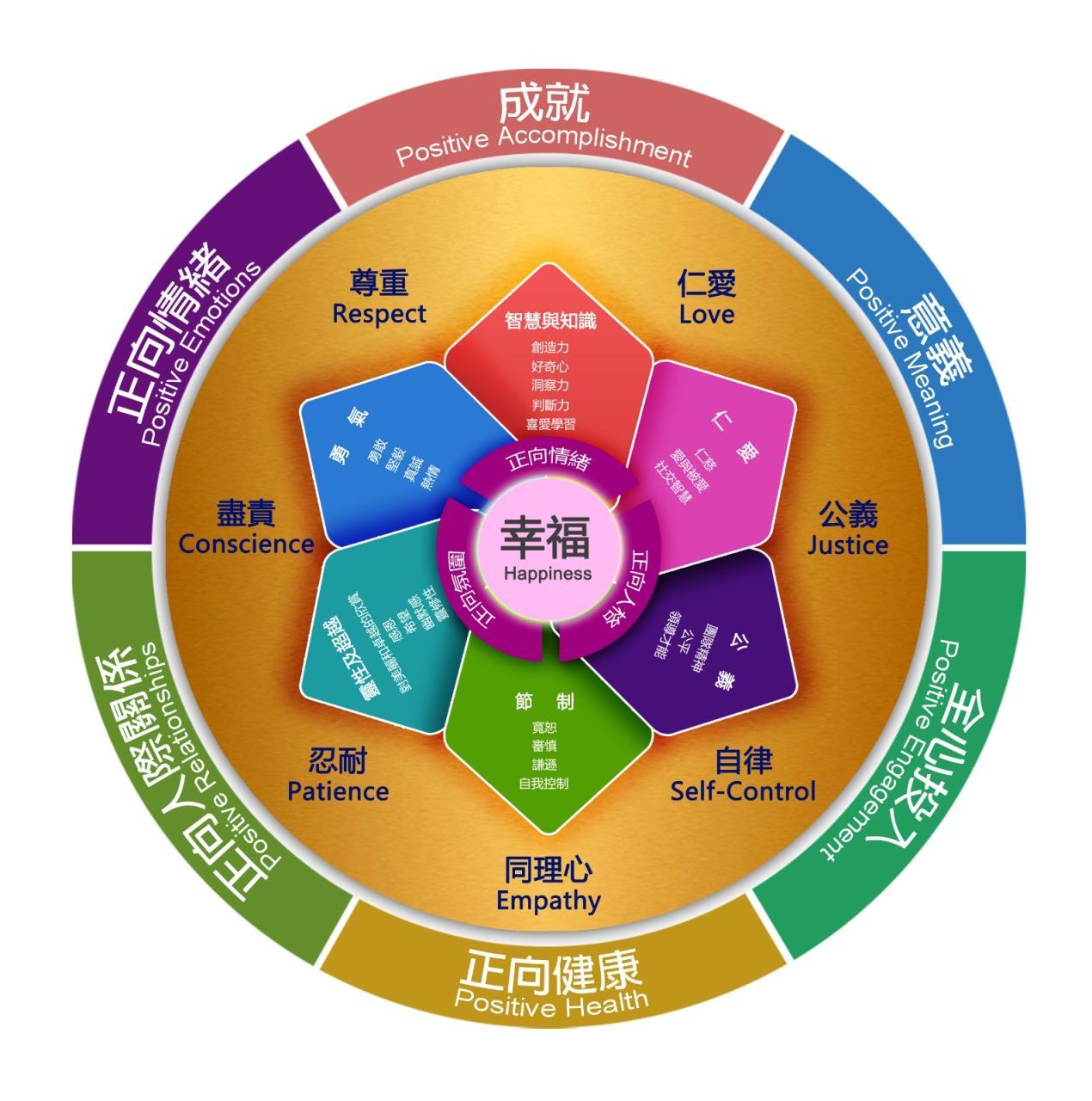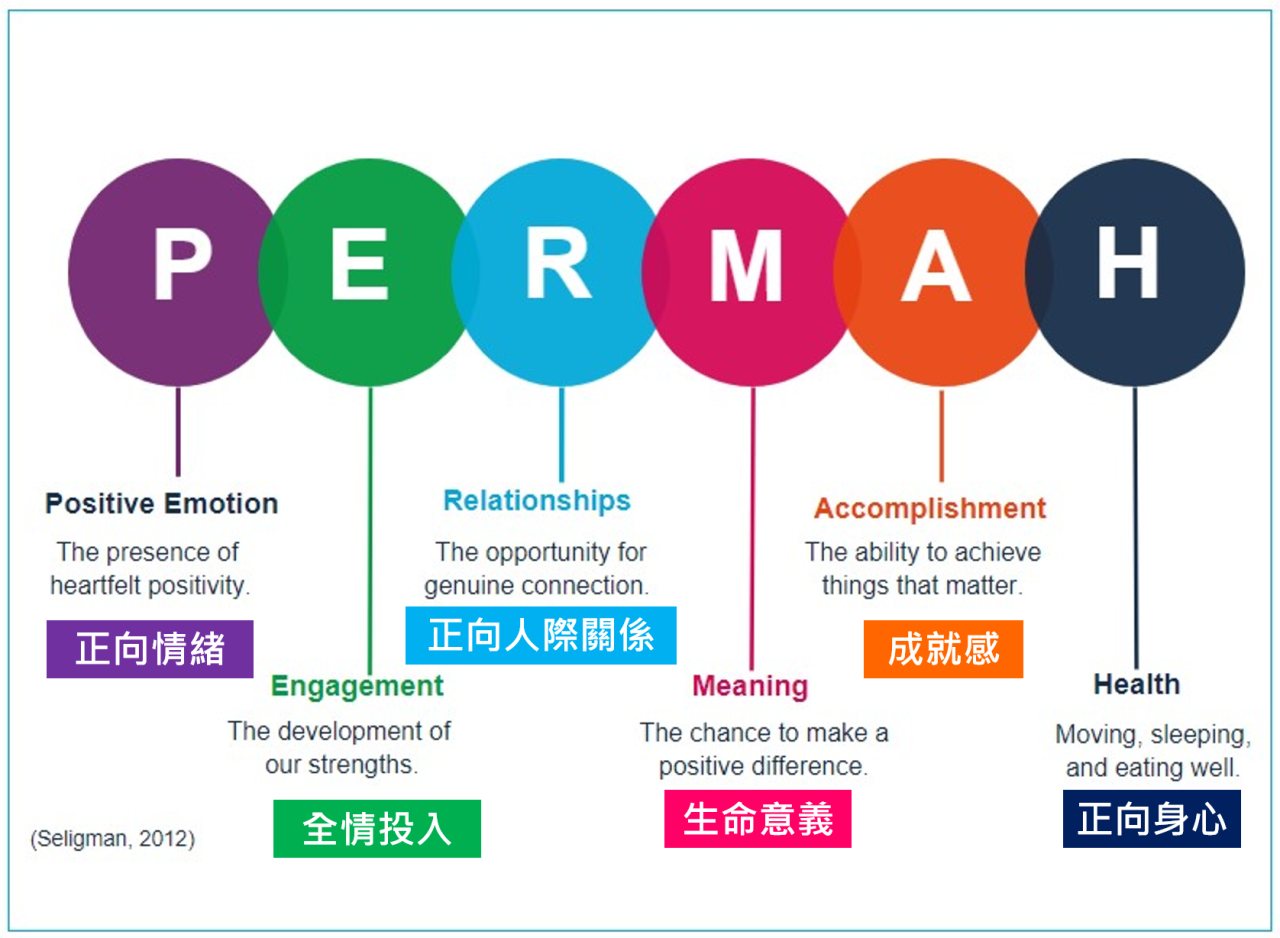In 2017, the World Health Organization (WHO) designated "depression" as the theme for World Health Day, and in 2020, it publicly declared that there are three major diseases that need attention worldwide, with depression being ranked second. One in every 20 people worldwide suffers from depression, and it is the leading cause of disability globally. "Anxiety" and "depression" are problems of this era!
Prevention is better than cure. Since 2017, Elegantia College’s Student Development Committee has actively promoted education of positive thinking, which enables a healthy and meaningful life, making it an excellent spiritual therapeutic agent for "anxiety" and "depression." It helps our next generation to resist negative emotional viruses such as "hopelessness" and "helplessness".
Education of positive thinking is the application of positive psychology principles in the school environment, assisting individuals to move towards perfection. Positive psychology is a social science based on verification that focuses on researching personal character strengths, establishing positive emotions, and happiness. In contrast to traditional psychology, which focuses on explaining the development or impact of negative emotions, positive psychology emphasizes the development of the whole person, aiming to discover, cultivate, and display individual strengths and potential, promoting positive elements such as optimism, happiness, and love, and actively facing the pressures and challenges of life, thus moving towards a fulfilling life. [1]
The theme of positive psychology is "happiness," which is a seemingly simple but extremely complex concept and a goal that humans have been striving to possess and pursue from ancient times to the present. There are six measurable elements of happiness (PERMAH), including positive emotions (P), engagement (E), relationships (R), meaning (M), accomplishment (A), and positive physical and mental health (H). None of these elements can independently define happiness, but they all make significant contributions to its establishment. [2]
In the environment of the growth of our next generation, social values are confused and diversified. Individualism and consumerism are dominant and are generally accepted as custom. The society expects schools to focus on the improvement of knowledge, self-enhancement, and achieving excellent academic results. Therefore, investing all kinds of resources, teaching time to promote the development of good moral character, cultivating students to become good citizens, and practicing the purpose of education to be a moral person is undoubtedly an important undertaking of school education. Going against the tide is not easy, but it is of great educational significance.
Our school’s core value is based on the educational concept of "integrating character and learning." We believe that a student's personal cultivation is more important than purely increasing their knowledge and achieving good grades. We are also willing to say "no" to false and harmful social trends that distort the beauty of life and hinder the physical and mental growth of young people. We adhere to the seven core values of excellent traditional virtues (empathy, conscience, self-control, respect, love, patience, and justice)[3]. We promote moral education and civic education at all levels, foster good teacher-student interaction, create a positive atmosphere within classes, forms and school, and jointly build a beautiful campus life.
The father of positive psychology, Martin Seligman, pointed out that if people can apply their strengths in various aspects of their work, leisure, and family life, they will easily experience true happiness and fulfillment (2011). After practice, Peterson and Seligman summarized over 200 positive human characteristics into six virtues, including wisdom and knowledge, courage, spirituality and transcendence, benevolence, justice, and moderation. They also extended 24 specific and measurable character strengths from these abstract virtues (2024)[4].
Student Development Committees focuses on “Quest of the Treasure, the Dream, and the Meaning of life”
" Quest of the Treasure, the Dream, and the Meaning of life " are the major development directions of the Student Development Committee's three-year plan from 2017 to 2020. We focus on cultivating students' “Quest of the Treasure" in the first year. Through education of positive thinking, students are guided to discover their inner potential. With the help of the 24 character strengths in positive psychology, classmates are helped to recognize their own strengths, thus establishing students' confidence and a sense of diversified achievements. In the second year, starting from "Quest of the Treasure", students move towards the road of the "Quest of the Dream". Students identify their unique talents and explore long or short-term goals in life. When life has a purpose and direction, life becomes meaningful and valuable. It is the meaning of finding the meaning of life.
Student Development Committees Focus: Flourishing
In order to help students utilize their inner psychological energy, we are committed to continuously exploring students' 24 character strengths (divided into 6 years of cultivation, with 4-5 strengths each year, linked to the school's seven core values) and cultivating students' six elements of happiness through positive psychology (divided into 3 years of cultivation, with 2 elements each year).
- Positive Emotion (P)
- Health (H)
- Relationship (R)
- Engagement (E)
- Accomplishment (A)
- Meaning (M)
By understanding these areas, students can develop their inner psychological strength to cope with life's pressures, changes, and challenges, creating a sense of multifaceted achievement, and establish a fulfilling life.
- If students' lives are fulfilling, they will feel calm and happy, have good social relationships, have the ability and confidence to achieve goals, and make contributions to others.
- If teachers' lives are fulfilling, they will experience positive emotions throughout the day, find meaning in their work, and feel valued as a member of the school.
- If a class is fulfilling, students will feel like they are a part of the class, teachers will feel confident and satisfied, and the entire class will be engaged and actively learning.
- If a school is fulfilling, all members of the school community will feel a strong sense of mission and belonging to the school, and the school's culture will promote positive emotions, effective learning, and social responsibility.
[1] 湯國鈞、 姚穎詩、 邱敏儀 (2010)。 喜樂工程。 香港: 突破出版社。
[2] 馬丁.沙利文博士著、洪蘭譯 (2012)。邁向圓滿。台北﹕遠流出版事業股份有限公司。
[3] Building Moral Intelligence: The Seven Essential Virtues that Teach Kids to Do the Right Thing, Michele, San Francisco, Calif. : Jossey-Bass, c2001. 中譯:《建立道德智商:教給孩子的7項關鍵品行》
[4] Seligman, M. E. P. (2011). Flourish: A Visionary New Understanding of Happiness and Well-being. New York: Free Press.
Peterson, C., & Seligman, M. E. P. (2004). Character strengths and virtues: A handbook and classification. New York: Oxford University Press and Washington, DC: American Psychological Association.






